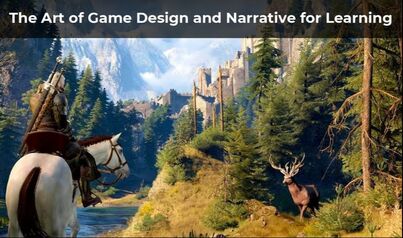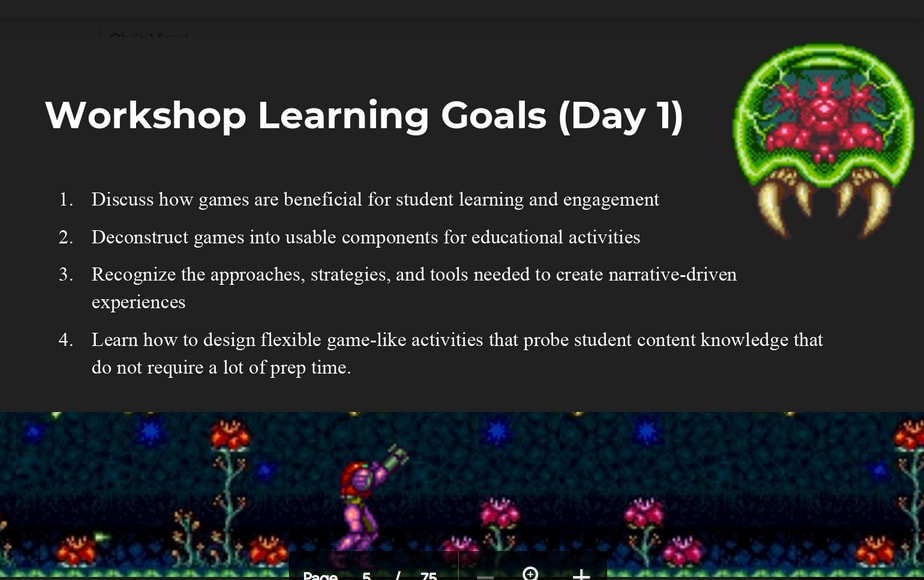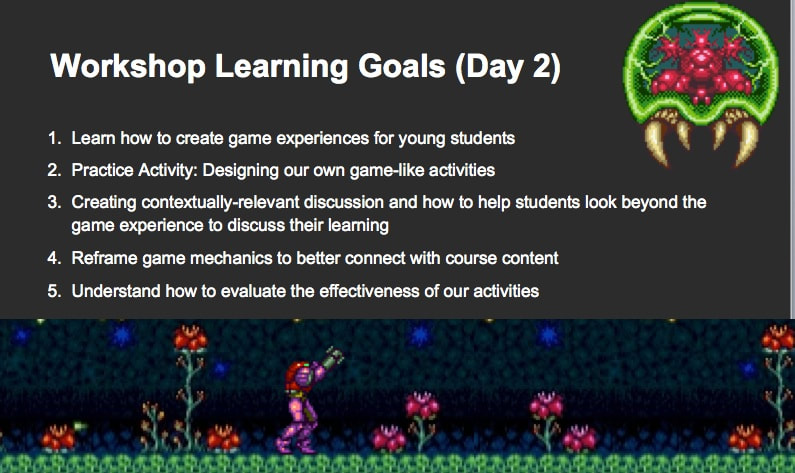 The teachers who joined Chris Vicari’s “The Art of Game Design and Narrative for Learning” webinars, had this to say, “With virtual learning being something we are all dealing with now, video games are an excellent option for learners that don't do well with traditional learning”, "Games don't have to be complex to be engaging."; and "Games can be very beneficial as a supplement to lessons.";, among other arguments. Chris Vicari is an Educational Technologist professor at Fordham University and throughout his interactive presentation and student-centered instructional demonstrations, he offered a solid rationale for using digital board games and digital action games, from pre-Kindergarten to High school. Based on current research on self-determination and mindset motivation (Carol S. Dweck, Stanford University), Vicari discussed how games are beneficial for student learning and engagement. For example, digital games enable language development through symbolic
games and dramatic play. In a way, it is similar to the type of activities that children play in their Learning Corners in the classroom, but with richer possibilities because of its action video game appeal. Children of all ages, exhibit high levels of engagement when they immerse themselves in the game or adopt the character they are role-playing. And in this context, learners persist with the completion of a game despite the inevitable challenges that they are presented with along the way. These same students when sitting in front of a Math worksheet may fail to resolve the problems presented unless they have memorized the formula or remembers the steps to resolve the problems. As Mr. Vicari explained, digital games immerse students in a situated experience where failing means experimenting a different solution or looking for a new approach, and that building a learner’s confidence, agency (autonomy), and relatedness, or the need to satisfy our connections with others. That is, digital games can be a good vehicle to foster cooperative skills and empathy. Understanding the art of game design was the preclude to an action-packed segment on how to develop the narrative for learning, where Chris Vicari deconstructed familiar games into usable components for educational tasks, and outlined a step by step process on how to designed flexible game-like activities that probe student content knowledge without demanding a lot of preparation. Teachers welcomed his approach as evidenced in their feedback. My next step "I will be setting my learning goals, deciding which concepts I want to apply, determining how it connects with content and creating a student reflection piece. Then creating my story prompt, choosing roles and stakeholders.” and my next step will be to"; Map out learning goals, concepts to be applied, determine how it connects and create a student reflection piece."; Reading about the value of game-based learning, we have also learned how it can turn reluctant writers into enthusiastic writers and storytellers (Suzie Boss, Edutopia 2019), In this article, Boss describes how in a ninth-grade class, and after six weeks of well-planned game-based writing tasks, students had produced some 729,500 words, which is nearly equivalent to the first six books of the Harry Potter series, “[Students] have written and written, and all the chatter in the classroom has been focused on what their characters are doing. If writing is a muscle, I’ve gotten some incredibly muscular students out of this experience.” stated the teacher. In summary, learning about the art of game design and the narrative for learning offers great opportunities for professional growth in a content-rich and entertaining environment that will directly benefit your students’ learning in the virtual or brick-and-mortar classroom. The PDRC Team wants to make this summer, the summer when you discover the possibilities that game design offers to enrich and deepen your instructional toolbox. To that end, we are offering you the opportunity to join Chris Vicari’s mini-course, “Call to Adventure: Generating Gamified Educational Experiences Through Roleplay, Design, and Literacy” which will be enhanced with a writing component facilitated by Writing is Thinking (WITSI) consultants.
0 Comments
Your comment will be posted after it is approved.
Leave a Reply. |
Archives
January 2024
Categories
All
|


